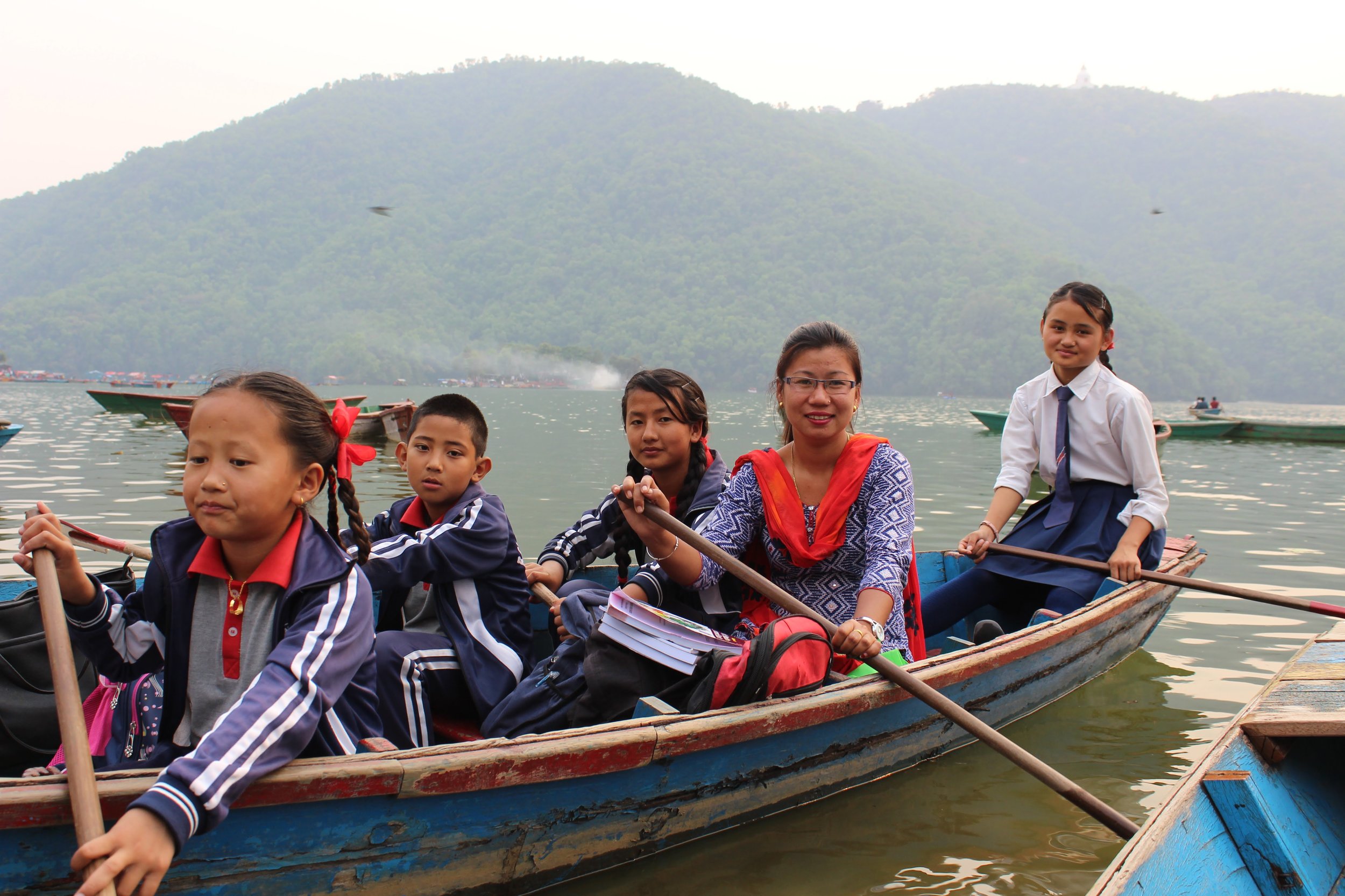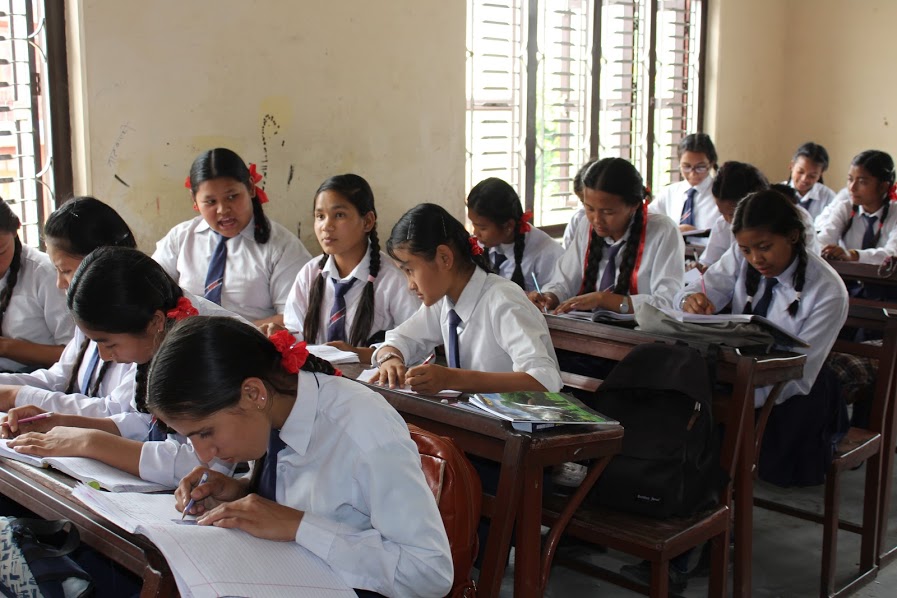School boats give girls a chance at education
Aashma and her friends on a boat. (Courtesy: Nirmal Adhikari)
For girls in a remote Nepali village, rowing to school is the only way they can complete their education.
Every morning 16-year-old Aashma puts on her uniform, ties her neatly braided pigtails with red ribbons and gets ready to row her school boat. Aashma lives in Anadu, a remote lakeside village in Nepal. Anadu doesn’t have a secondary school, so Aashma and her friends must paddle every day to the city of Pokhara to go to school.
Aashma walking to her school boat. (Courtesy: Nirmal Adhikari)
“None of us know how to swim, but we aren’t scared,” Aashma says of her daily journey on Fewa Lake — one of Nepal’s most recognised tourist attractions. The girls travel with a teacher and row the boat together, taking turns to paddle during the 30-minute journey.
In remote Nepali communities like Anadu, these school boats are a necessity for students who want to receive quality primary education or complete their secondary education. According to Aashma, the primary school in Anadu is poorly maintained and staffed with teachers who don't have any prior training. Students go to school in Pokhara by boat since the journey by road would take them hours.
Aashma and her friends are happy to go to school in the city — no matter the route they take to get there. But harsh weather conditions often force them to stay home and these absences put the girls at risk of falling behind in their classes. Sometimes they are stuck in school for hours as they wait for the weather to settle down so they can take their boat out. On nights when they’re delayed, Aashma and her classmates row back to Anadu using only a flashlight to guide them.
In addition to her daily commute on the water, Aashma must also find time to help her mother with chores every day before and after school. It’s the only way she can continue her education without it being a burden for her family. Aashma says the hard work is worth it not only because she loves her classes, but also because she loves to dance at school functions and spend time with friends.
After completing her education, Aashma plans to become a teacher and help girls in her village go to school — without having to row to get there.
 Read more
Read more
















